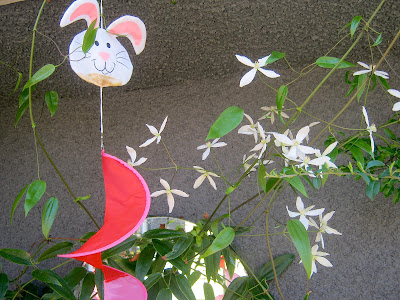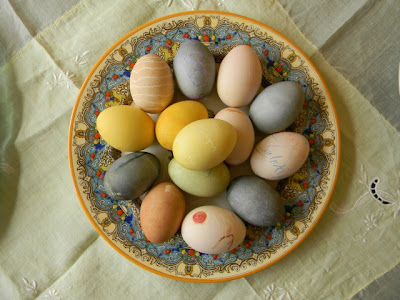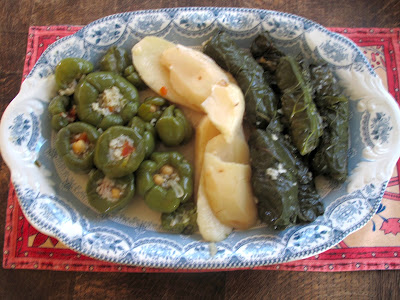I had the honour of being invited today for an Easter Lunch with my dear lovely neighbour and her family.
Three generations gathered around this beautifully set table celebrating the resurrection of Jesus Christ, enjoying the warmth of family and a deliciously perfectly prepared Indian feast.
The cutest were the name place holders - boiled eggs with each guest's name drawn on them. So sweet.
The lunch was a traditional South Indian chicken curry.
Spices were freshly ground this morning and the dish simmering aromatically.
Hot, but the kind that makes your stomach feel ecstatic.
And for the vegetarian among the family, a perfectly made South Indian style potatoes and cauliflower dish.
I could have eaten this all day along raita with fresh tomatoes, cucumbers and onions.
And as what Olly Jolly taught us, we all counted our blessings.
The blessings of celebrating Easter together and remembering the families and loved ones who were not celebrating with us.
The blessings of having a roof over our heads and good food at every meal.
And the blessings of having such wonderful dear lovely neighbour to call a dear friend.
Wait, also the blessings of a favourite dessert - yellow and creamy mango pudding; yum.
Thank you dear lovely neighbour and your family for such a beautiful meal and company on this holy day.
Three generations gathered around this beautifully set table celebrating the resurrection of Jesus Christ, enjoying the warmth of family and a deliciously perfectly prepared Indian feast.
The cutest were the name place holders - boiled eggs with each guest's name drawn on them. So sweet.
The lunch was a traditional South Indian chicken curry.
Spices were freshly ground this morning and the dish simmering aromatically.
Hot, but the kind that makes your stomach feel ecstatic.
And for the vegetarian among the family, a perfectly made South Indian style potatoes and cauliflower dish.
I could have eaten this all day along raita with fresh tomatoes, cucumbers and onions.
And as what Olly Jolly taught us, we all counted our blessings.
The blessings of celebrating Easter together and remembering the families and loved ones who were not celebrating with us.
The blessings of having a roof over our heads and good food at every meal.
And the blessings of having such wonderful dear lovely neighbour to call a dear friend.
Wait, also the blessings of a favourite dessert - yellow and creamy mango pudding; yum.
Thank you dear lovely neighbour and your family for such a beautiful meal and company on this holy day.
Happy Easter!















































